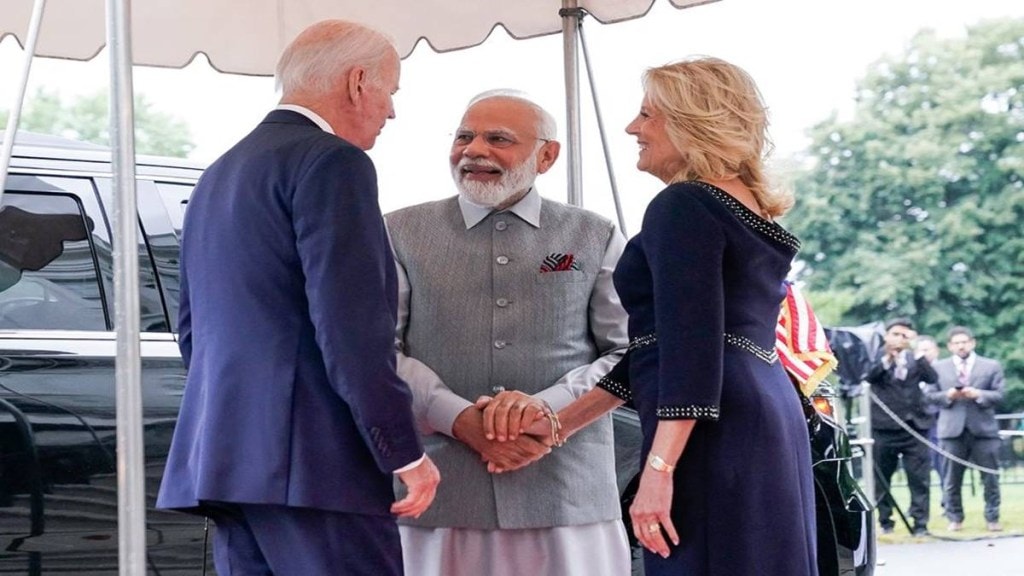Prime Minister Narendra Modi‘s upcoming bilateral meeting with US President Joe Biden is expected to address a range of trade-related concerns for Indian industry.
These include issues such as non-immigrant visas, the social security pact, restoration of preferences for exporters under the GSP scheme, and the revocation of penal duties on steel and aluminum.
On the other hand, President Biden may discuss trade irritants with India, including data localization regulations, tariffs on ICT products, and India’s digital services tax.
Biden may focus on expediting the conclusion of the Indo-Pacific Economic Framework (IPEF) and potentially persuading India to join the trade pillar of the alliance. Both leaders will also emphasize the goal of strengthening the bilateral goods trade target of US$500 billion.
It is anticipated that Modi will address problems related to non-immigrant visas, such as the H1B visa cap and delays in issuing L1 visas, which pose challenges for Indian professionals and IT companies. He may also call for the acceleration of the India-US social security totalization agreement, enabling Indian professionals in the US to access their social security deposits after their working visas expire.
PM Modi might advocate for the restoration of India’s beneficiary status under the Generalized System of Preferences (GSP) program, which grants duty-free market access for specific products. Additionally, he could seek the removal of tariffs on Indian steel and aluminum imposed by former President Donald Trump.
On the other hand, President Biden may raise concerns about India’s data localization regulations, import tariffs on ICT products, and the need for a global tax framework. He may also encourage India to join the trade pillar of the IPEF, which India has been hesitant to commit to due to concerns about digital trade and its impact on the environment and labor.
However, India is actively engaged in negotiations in the remaining pillars of the IPEF, focusing on supply chains, clean energy, decarbonization, infrastructure, and tax and anti-corruption.

